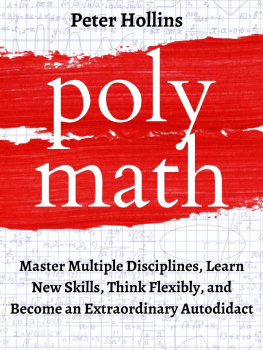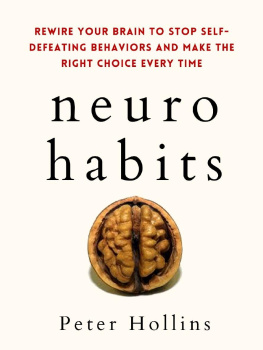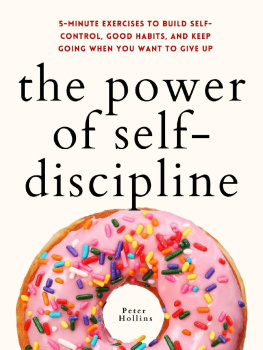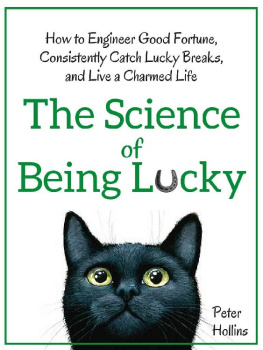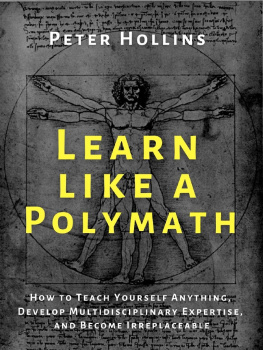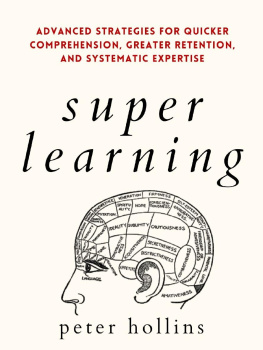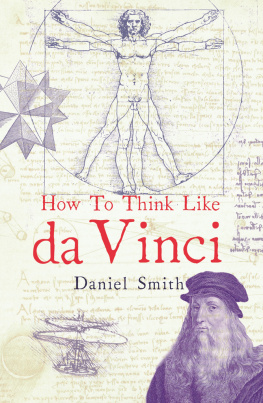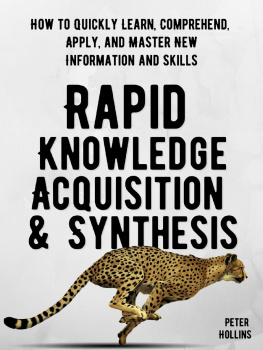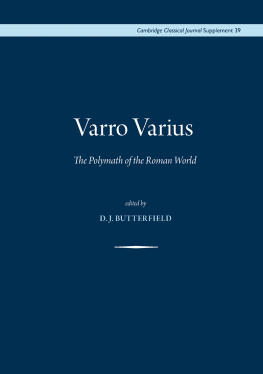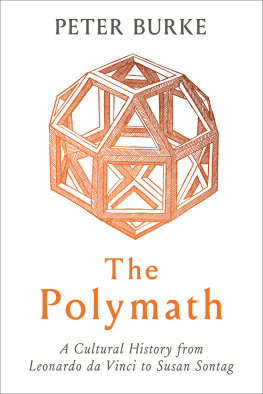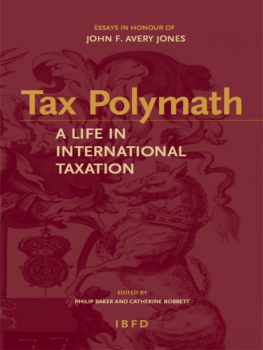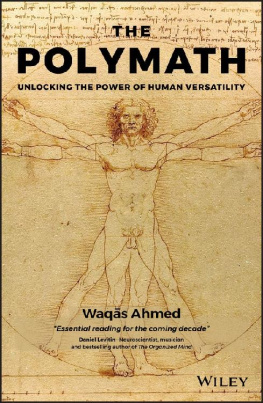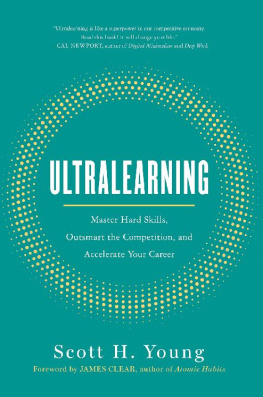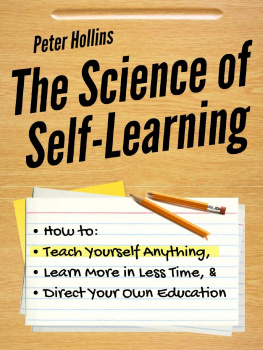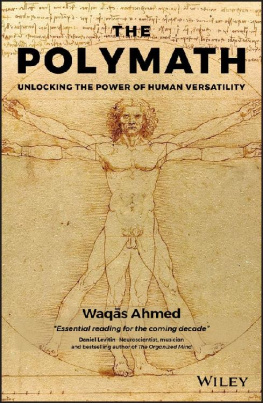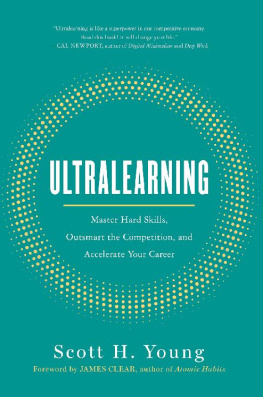Table of Contents
Polymath:
Master Multiple Disciplines, Learn New Skills, Think Flexibly, and Become Extraordinary Autodidact
By Peter Hollins, Author and Researcher at petehollins.com
Click for your FREE Human Nature Cheat Sheet: 7 Surprising Psychology Studies That Will Change the Way You Think
Chapter 1. Jack of All Trades
Benjamin Franklin is one of American historys most successful and influential figures. What exactly was he famous for? At this point hes mostly relegated to political theory, but during his own time, he was known for just about everything.
Franklin was an accomplished inventor, respected politician and leading scientist. He engaged with current affairs, wrote prolifically on many topics, and acted as a diplomat, statesman, and passionate activist. He was a businessman who founded many organizations, such as the University of Pennsylvania and the first ever fire department in Philadelphia.
Franklin was a postmaster and political satirist. He invented a more efficient freestanding stove, a musical instrument (the armonica, if youre interested) and bifocals to deal with his own failing vision. He dabbled in electricity and conducted the famous lightning, metal key, and kite experiment. Oh, and he was one of the five key people who put together the American Declaration of Independence and the American Constitution.
His immense contributions to a wide range of fields make people wonder where the United States of American would even be without Benjamin Franklin. Many schoolchildren accidentally believe he was a president at some pointits not true, but it isnt hard to imagine the man finding time to run a country on the side of the countless other projects, inventions and enterprises he managed.
So, what is Benjamin Franklin famous for?
We could say that this sheer breadth of knowledge distinguishes himi.e. that hes a polymath. This term from the Greek means, having learnt much and was seemingly made for men like Franklin. Polymaths have knowledge in a wide range of subjects and fields, rather than specializing in just one. They are accomplished in multiple disciplines, seemingly thriving in the field of human enquiry itself, beyond the boundaries we draw between categories of study. The worlds most famous polymaths blend academic fields or create new ones from scratch. They are the quintessential Renaissance men who can do a little (or a lot) of everything and inspire us to imagine what the limits of human understanding and learning really are. It seems like they possess superpowers considering their prowess in multiple realms of knowledge. Other famous polymaths are also people you know by name and reputationLeonardo da Vinci, Rene Descartes, Elon Musk, Plato, Isaac Newton, Galileo, Michelangelo, Archimedes, and so on. It may not be possible to reach the levels of these people, but the quest of polymathism is something that could very well boost your life to new heights. Rather than being an inherent quality, it can be learned and cultivated by anyoneincluding you.
This book is about what it means to become a polymath, a Renaissance man, and a versatile autodidact (someone who teaches themselves). In our complex modern world of increasingly narrow specialization, we can instead choose to develop ourselves holisticallybecoming our best in the sciences, the arts, politics, academics, engineering, social affairs, literature, sports, and spiritual matters.
Our goal as aspiring polymaths is therefore to become the kind of well-rounded and multiply accomplished human beings who can do all of these things with a degree of expertise. The name of the game is development, learning and masterythe particular fields we develop ourselves in are almost beside the point.
Master of None
Have you heard the expression, Jack of all trades, master of none? Its not a positive connotation that we associate with people who have many interests and spread their time around liberally.
Despite revering intellectual powerhouses like Benjamin Franklin, in real life some of us are dismissive of people who flit about, never settling in one field but entertaining several (sometimes wildly different) interests. The debate between the generalist and the specialist is ongoing and has fallen in and out of favor throughout history. When you survey the most prominent and successful scientists, its easy to see that the majority were decidedly generalists. Rather than taking a shallow and ineffectual approach, they seemed instead to achieve even more for the fact that they had multiple interests at any one time.
Ultra-successful entrepreneurs have also been known to dabble widely, and continue to undertake projects of all stripes after they find success in one area. We could argue that these people are all geniuses who engaged with multiple disciplines because they were smart and successful, rather than the idea that their success was in part their versatility.
But on the other hand, there are now several convincing studies showing a link between a persons achievements and the number of distinct interests and skills they hold. A 2009 paper by Robert Root-Bernstein explored data from Nobel Laureates in all disciplines and found a strong connection between creativity and being a polymath, thus challenging the idea that specialization is required for success.
Lets take a closer look. When most people talk about famous polymaths, they are referring to people who have not just earned competencies in different areas, but who manage to creatively integrate those abilitiesand the sum is inevitably greater than the parts!
These are the people who are adept at not just one type of problem (and therefore one type of solution) but who are skillful at learning itself. They can blend and cross-pollinate ideas, methods and solutions from all across mankinds rich tapestry, which often allows them to come up with game-changing Big Ideas. Many of the true leaps in a particular field or science have come from intelligent visitors from other disciplines who brought a fresh perspective and found a way to link material to the benefit of both fieldsor even the creation of an entirely new branch.
Imagine a T-shape. The horizontal bar on the top represents breadth of knowledge across domains, while the vertical bar represents depth of knowledge in just one area. If youve read Malcolm Gladwells Outliers, you may be familiar with the 10,000 hour rule, which claims that 10,000 hours of deliberate quality practice makes one an expert in a particular field. But this may not really apply to polymathsthey appear to make deep breakthroughs without putting in the hours.
Its as though the creative combining of skills across disciplines allows for quicker breakthroughs than merely hammering away in just one field, unaware of anything else in other domains. When it comes to business or entrepreneurial polymaths, something else becomes clear: being a generalist often means way less competitionits an open field. A T-shape is not the goal for a polymath; rather, a pi shape is, or even a comb shape, representing depth of knowledge in multiple realms. The specific combinations of these realms is where the magic happens.
Charles Darwin, Elon Musk and Leonardo da Vinci are famous polymaths, but you dont need to reach their level to benefit from their approach. You dont need several degrees, or to dabble in the same topics (physics, politics, business and literature are all commonbut rather than assuming theres something fundamental about these topics, ask why a polymath would be drawn to them).
Being a polymath does require something of a perspective shift: rather than running as far as you can in a single race, you open your field of perception to take in as much as possible, and draw atypical connections to link the knowledge you already have in surprising ways. Be probing and bold in thought; ask unusual questions and put things together that are ordinarily separate, just to see what happens.

